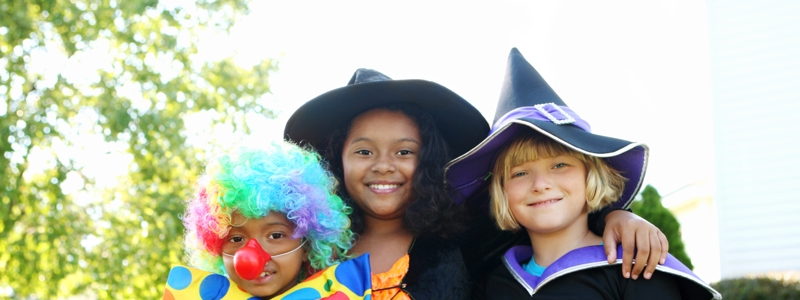The spookiest time of year is upon us! Check out these 10 fun Halloween terms to add to your vocabulary (and impress other trick-or-treaters).
1. Candy
Many people assume “candy” is an American term because the word “sweets” is commonly used throughout the UK. However, candy actually has its roots in Old French and derives from the term çucre candi (“sugar candy”).
2. Ghost
What would Halloween be without ghosts? The word “ghost” actually comes from the old English word gast. In addition, ghosts aren’t necessarily evil and supposedly can be either good or bad – they are simply restless spirits with no physical body that have not yet “moved on.”
3. Ghoul
Ghouls are often confused with ghosts, but they are actually very different! Originating from the Arabic word ghūl, these creatures are apparently undead monsters who are known to feed on the living. Yikes – best to avoid ghouls!
4. Zombie
You may think zombies and ghouls are the same, but there’s one key difference: zombies are mindless beings, and can even be commanded to serve the individual who “brought them back.” Zombie army? No thanks!
5. Goblin
Goblins are often confused with ghosts, but these two spooky entities have little in common. Goblins are small monsters, similar in appearance to demons, often depicted with pointy ears and “troll” like features.
6. Witch
Today we think of witches as evil sorceresses who ride broomsticks and wear pointy hats, but historically this wasn’t always the case! The word “witch” actually derives from the Old English term wicce, which actually means “wise woman.” Witches only became feared during medieval times, with “witch hunts” reaching their peak between 1450 and 1750.
7. Warlock
A warlock is the male version of a witch! Unlike witches, however, warlocks have always been considered evil. The Old English term wærloga means “breaker of oaths” or “deceiver” and these creatures were often associated with demonry.
8. Vampire
Most people know that vampires are bloodsucking monsters, but did you know that vampires have been talked about since ancient times? Some of the earliest tales about vampirism date back to ancient Greece, with victims reportedly being attacked and having their blood drained!
9. Werewolf
The word “werewolf” has perhaps the most literal historical meaning with the Old English term werewulf translating to “man-wolf.” Although werewolves are typically known to “turn” during a full moon, some werewolves are supposedly able to transdiv at will. In some mythology, werewolves are also referred to as lycans or lycanthropes.
10. Jack-O-Lantern
Carving pumpkins is a classic Halloween tradition, but the origin of the term “Jack-O-Lantern” might surprise you! In 17th century Britain, it was slang to refer to a male stranger with a common name such as “Jack” (similar to the way we say “guy” today). As a result, an unknown man carrying a lantern was sometimes referred to as “Jack of the lantern!”


